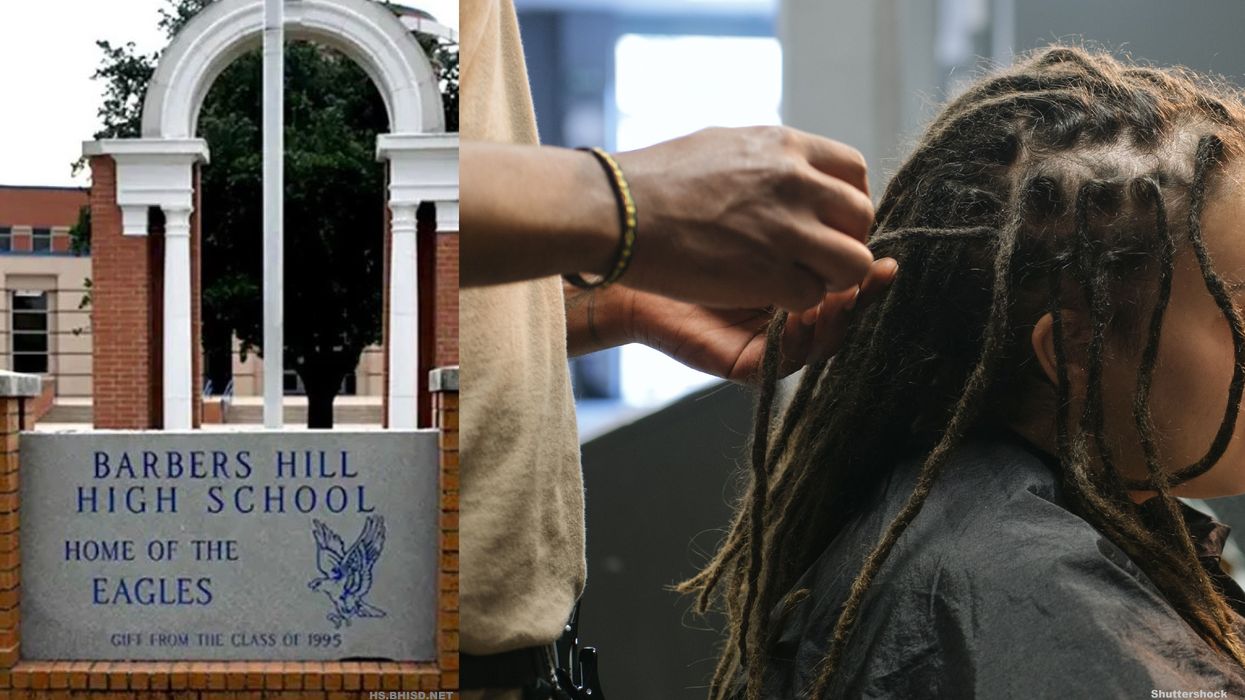A Black high school student in Texas is suing the governor after being suspended for his hairstyle, despite the state's newly enacted nondiscrimination law.
According to a complaint in the U.S. District Court for the Southern District of Texas filed Saturday, 17-year-old Darryl George has been prevented from attending classes and football at Barbers Hill High School for over three weeks. His family claims that district officials have also threatened to move him to a different schoolif he does not change his hair.
George received an in-school suspension because his hair fell below his eyebrows and ear lobes. The school district dress code prohibits male students from having hair that extends below the eyebrows, ear lobes, or top of a t-shirt collar.
District officials have argued that George's suspension does not constitute discrimination because they are policing his hair's length, not its style, but George's family said in their filing that he wears his hair “as an outward expression of his Black identity and culture."
The CROWN Act, which stands for “Create a Respectful and Open World for Natural Hair," went into effect Sept. in Texas. The law is intended to prohibit race-based hair discrimination, and prevent employers and schools for punishing people due to hair texture and/or protective hairstyles such as braids, Afros, locs, twists, or Bantu knots.
Ending Hair-Based Discrimination With The CROWN Act

Texas is currently one of 24 states that have enacted versions of the CROWN Act. A federal version of the CROWN Act went through the House of Representatives last year but did not pass the Senate.
The George family's complaint argues that Republican Governor Greg Abbott and Republican Attorney General Ken Paxton have a responsibility to ensure that the law is followed.
This is not the first time Barbers Hill High School has singled out Black students for their hair. School officials suspended a 18-year-old and 16-year-old in 2020 for keeping their hair in locs.
The former, De’Andre Arnold, was barred from prom and graduation after refusing to cut his hair, and ultimately transferred districts. The latter, Kaden Bradford, sued the district for violating his civil rights, and was granted an injunction that prevented the district from enforcing the policy against him. His case is still pending in court today.


















































